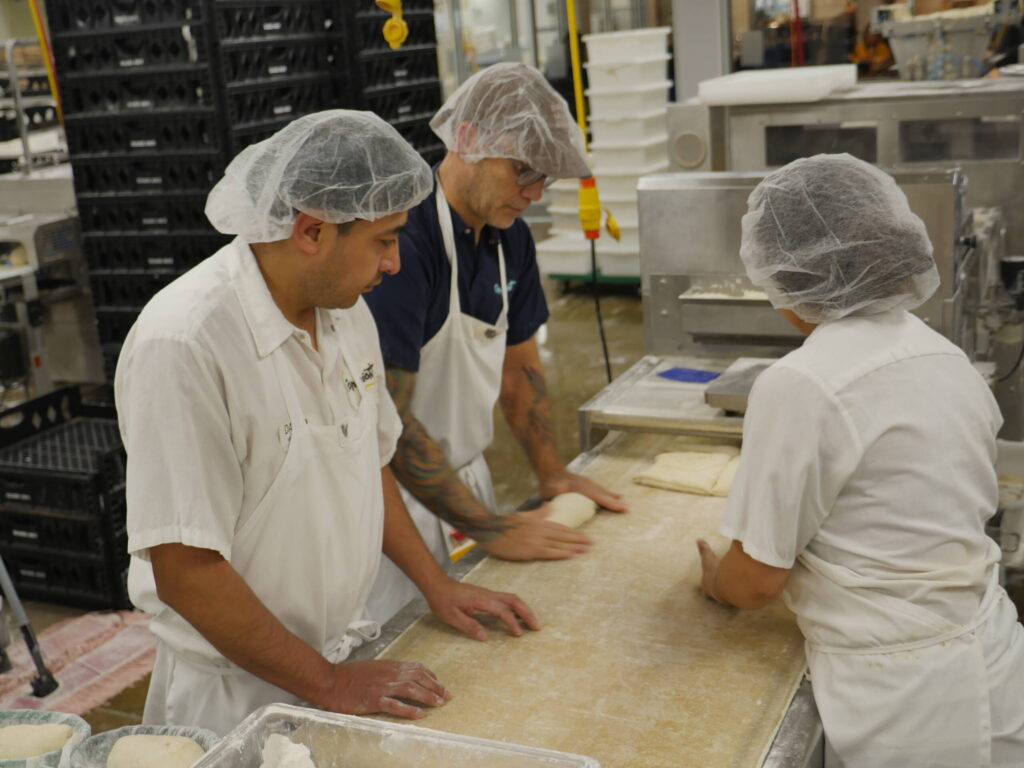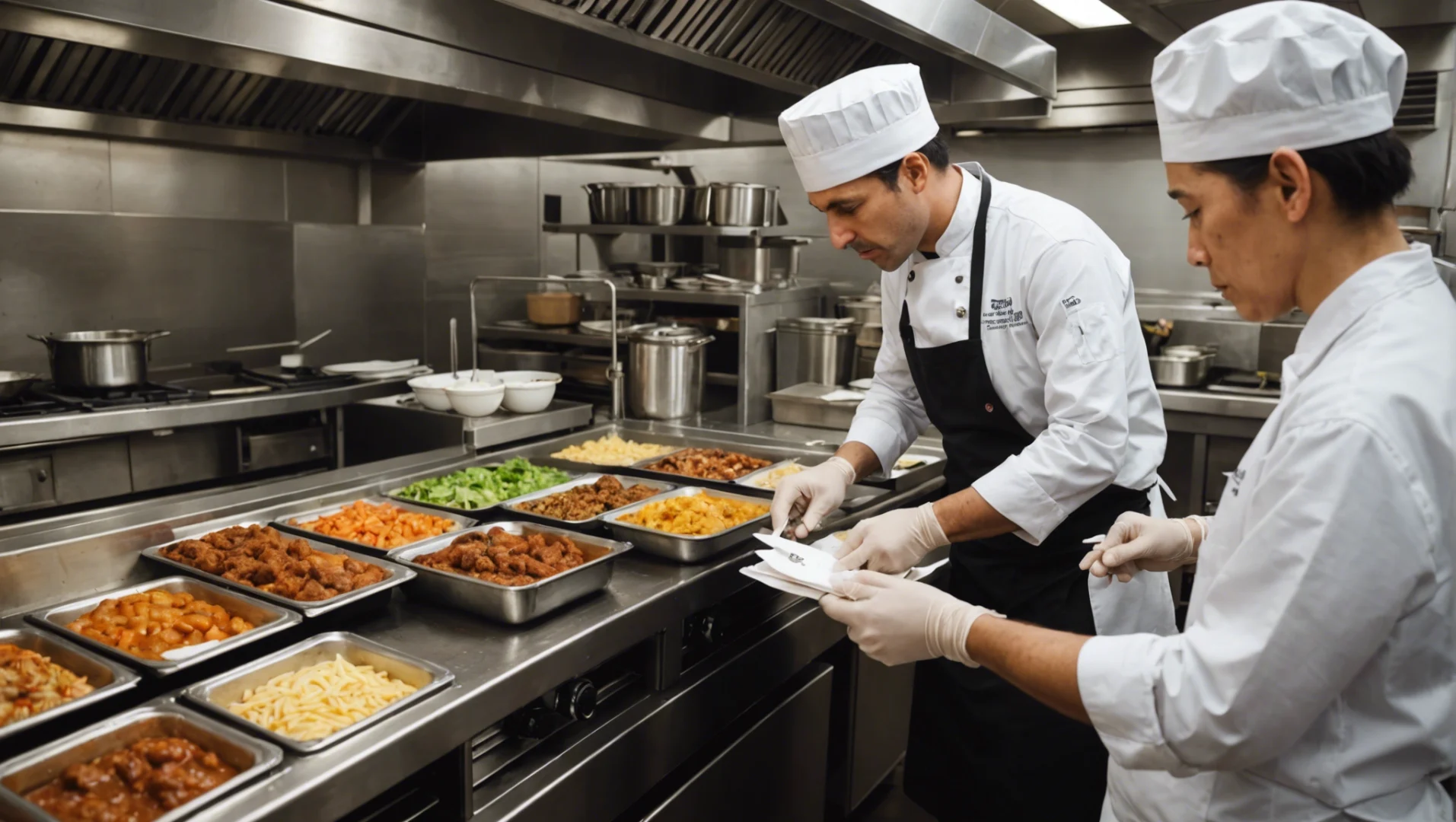Why Is Food Safety Compliance Management and Audit Readiness Crucial for Businesses?
Food safety compliance management is essential for protecting public health and maintaining business integrity. A strong compliance system helps businesses:
- Meet strict regulatory requirements
- Prevent foodborne illnesses
- Build consumer trust
- Protect brand reputation
- Avoid costly penalties
Challenges of Traditional Systems
Traditional paper-based systems present significant challenges for food businesses:
- Time-consuming manual documentation
- Prone to human error
- Difficult to track and retrieve records
- Limited visibility across operations
- Risk of damaged or lost records
Benefits of Digital Solutions
The digital revolution has transformed food safety management through advanced tools that offer:
- Real-time monitoring of critical control points
- Automated documentation for consistent record-keeping
- Centralised data storage for instant access
- Mobile accessibility for staff convenience
- Intelligent alerts for immediate action

These digital solutions help businesses maintain audit readiness by creating comprehensive audit trails and ensuring compliance with food safety regulations. The shift from paper logs to digital platforms represents a significant advancement in how businesses approach food safety management.
Modern food safety compliance management and audit tools integrate seamlessly with existing operations, providing businesses with the confidence that they’re meeting regulatory requirements while protecting their customers’ health.
What Are the Key Features to Look for in Food Safety Compliance Management Tools?
Selecting the right food safety compliance management software requires understanding essential features that drive efficiency and ensure regulatory adherence. Here’s what you need to prioritise:
1. HACCP Automation
- Digital implementation of your HACCP plan
- Automated critical control point monitoring
- Real-time alerts for threshold breaches
- Built-in corrective action procedures
2. Real-Time Monitoring Capabilities
- Temperature sensors with instant readings
- Equipment performance tracking
- Immediate notification systems
- Live data visualisation dashboards
3. Digital Record-Keeping
- Cloud-based storage solutions
- Automated data entry
- Secure document management
- Quick retrieval of historical records
4. AI Compliance Monitoring
- Pattern recognition for risk prediction
- Automated compliance checks
- Smart scheduling of safety tasks
- Intelligent reporting systems
5. Mobile Accessibility
- User-friendly mobile apps
- Remote access to safety records
- Offline functionality
- Cross-device synchronisation
These features create a robust framework for maintaining food safety standards. Your chosen software should integrate these capabilities seamlessly into your existing operations while providing intuitive interfaces for staff at all levels.
Learn more on: Choosing the Right Food Safety Compliance System for Your Operation
The right combination of these features transforms complex compliance requirements into manageable daily tasks, reducing human error and strengthening your food safety protocols.

How Do Food Safety Compliance Management Tools Ensure Audit Readiness for Businesses?
Digital audit trails create an unbreakable chain of documentation that transforms the audit preparation process. Food safety compliance management tools maintain detailed records of every check, task, and corrective action taken within your facility. These digital footprints provide: Read more about documentation on https://meded.ucsf.edu/policies-procedures/medical-student-documentation-policy
1. Real-time Documentation Access
- Instant retrieval of temperature logs
- Time-stamped photo evidence
- Digital signatures for accountability
- Complete HACCP records
2. Automated Compliance Verification
- Built-in validation checks
- Alert systems for missed tasks
- Non-compliance flagging
- Corrective action tracking
Food safety management tools streamline internal audits through automated workflows. You’ll find pre-configured templates aligned with regulatory requirements, reducing preparation time and human error. The system guides staff through each audit step, ensuring consistent execution across all locations.
These digital solutions enable proactive audit preparation by:
- Generating automated compliance reports
- Maintaining organised documentation hierarchies
- Providing instant access to historical records
- Supporting multi-site standardisation
During regulatory inspections, you can demonstrate compliance with confidence. The system’s search capabilities allow you to locate specific records within seconds, impressing auditors with your organised approach to food safety management.
What Makes Squizify a Leading Food Safety Compliance Solution?
Squizify stands out in the food safety compliance landscape with its comprehensive suite of integrated features designed for operational excellence. The platform’s custom checklists adapt to specific business needs across various sectors, including hospitality, healthcare, aged care, and manufacturing.
Unique Hardware Integration
The platform’s distinctive hardware integration sets it apart:
- Smart temperature monitoring sensors
- Automated food label printing systems
- Real-time freight temperature tracking devices
Secure SaaS Platform
Squizify’s secure SaaS platform delivers unmatched accessibility through:
- Internet-connected device compatibility
- 24/7 data access from any location
- Live chat support round-the-clock
Customisation Capabilities
The software’s customisation capabilities shine through personalised discovery calls and demo sessions. You’ll receive a solution precisely matched to your operational requirements, whether you manage a small café or a large-scale manufacturing facility. Click here to find more about precisely.
Automated Record-Keeping System
Squizify’s automated record-keeping system transforms daily operations by:
- Eliminating manual data entry errors
- Reducing time spent on compliance tasks
- Streamlining operational workflows
- Ensuring consistent food safety standards
Versatility Beyond Food Safety Management
The platform’s versatility extends beyond food safety management to support general operational compliance, making it a unified solution for businesses seeking comprehensive control over their safety and quality processes.
Which Other Software Platforms Are Popular Among Businesses for Food Safety Compliance Management?
Several established software platforms serve the food safety compliance management sector, each bringing unique strengths to the table:
1. Process Street
Process Street is a digital process management tool that offers customisable templates and real-time collaboration features. It allows teams to coordinate effectively and automate workflows, saving time and reducing manual effort. With integrations with popular business tools and a mobile-friendly interface, Process Street ensures that food safety processes can be accessed and managed from anywhere.
2. FoodReady
FoodReady is a specialised software platform designed specifically for HACCP (Hazard Analysis Critical Control Point) compliance monitoring. It provides a digital temperature logging system, automated alerts for critical control points, and supplier management functionality. FoodReady’s comprehensive reporting dashboard enables businesses to track their HACCP compliance status and make data-driven decisions.
3. Safefood 360°
Safefood 360° takes a risk-based approach to food safety management. It offers document control and version tracking features, supplier quality assurance tools, training management modules, and advanced analytics capabilities. Safefood 360° helps businesses identify potential risks in their operations and implement measures to mitigate them.
These platforms offer varying pricing models and feature sets to accommodate different business sizes and needs. Process Street excels in workflow management, FoodReady focuses on HACCP compliance, and Safefood 360° provides comprehensive quality management capabilities.
The choice between these platforms often depends on specific business requirements, such as:
- Scale of operations
- Regulatory compliance needs
- Budget constraints
- Technical infrastructure
- Staff training requirements
How Can Businesses Choose the Right Food Safety Compliance Tool for Their Needs?
Selecting the ideal food safety compliance tool requires careful evaluation of specific business requirements and operational demands. Here’s a practical guide to help you make an informed decision:
1. Scale and Complexity Assessment
- Evaluate your operation size and complexity
- Consider the number of locations and staff members
- Assess your current compliance challenges
2. Essential Technical Requirements
- Mobile accessibility for field operations
- Cloud-based storage capabilities
- Integration potential with existing systems
- Data security protocols and encryption standards
3. Budget Considerations
- Initial implementation costs
- Monthly or annual subscription fees
- Training and support expenses
- Return on investment potential
4. Vendor Evaluation Criteria
- Industry experience and reputation
- Customer support availability
- Training resources and documentation
- Update frequency and system maintenance
5. Customisation Capabilities
- Template modification options
- Workflow adaptation flexibility
- Reporting customisation features
- Language and regional compliance settings
6. User Experience Factors
- Interface intuitiveness
- Learning curve assessment
- Mobile responsiveness
- Offline functionality
Remember to request detailed demonstrations and trial periods before making your final decision. A hands-on experience with the tool helps ensure it meets your practical needs and aligns with your team’s technical capabilities.
What Advantages Do Businesses Gain by Embracing Advanced Digital Tools for Food Safety Compliance Management?
Digital tools are changing the game for food safety compliance management, offering measurable benefits across various operational areas. Here’s how businesses are using advanced digital solutions to improve their operations:
1. Time and Resource Optimisation
- Automated temperature monitoring eliminates manual checks
- Digital checklists reduce paperwork processing time by up to 80%
- Real-time alerts prevent food safety incidents before they occur
2. Enhanced Data Accuracy
- Digital sensors provide precise measurements
- Automated data collection eliminates human error
- Time-stamped records ensure data integrity
3. Cost Reduction
- Reduced food waste through precise monitoring
- Lower labour costs with automated processes
- Decreased risk of compliance-related penalties
4. Operational Intelligence
- Data analytics reveal trends and patterns
- Performance metrics guide decision-making
- Predictive maintenance prevents equipment failures
5. Staff Empowerment
- Mobile accessibility enables remote monitoring
- Clear task assignments improve accountability
- Digital training modules enhance staff competency
6. Brand Protection
- Consistent quality standards across locations
- Rapid response to potential safety issues
- Transparent compliance history builds trust
These advantages give businesses a competitive edge while ensuring food safety standards remain consistently high. Digital tools change compliance from a necessary duty into a strategic asset that drives operational excellence.
The Future of Food Safety Compliance Tools: A Call to Action for Businesses to Explore Innovative Solutions
The food safety compliance landscape continues to evolve with groundbreaking technological advancements. AI-powered analytics, IoT sensors, and blockchain technology are reshaping how businesses manage food safety protocols. These innovations promise enhanced traceability, real-time monitoring, and predictive maintenance capabilities.
Smart businesses recognise the need to stay ahead of compliance requirements. By embracing digital transformation now, you position your organisation at the forefront of food safety excellence. The time to act is now – explore innovative compliance solutions like Squizify to:
- Streamline your operations
- Reduce compliance risks
- Build customer trust
- Drive sustainable growth
Don’t let outdated systems hold your business back. Book a demo with Squizify today and discover how modern compliance tools can transform your food safety management practices.

